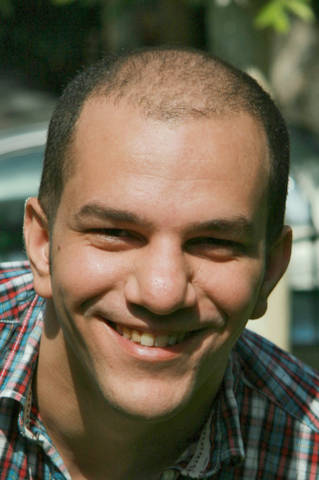Living in fear of Egypt’s counter-revolutionary bogeyman
By Osama Diab
Fear of retaliation from the old regime shouldn't be used to limit Egyptians' hard-won freedoms and attack peaceful protesters.
Monday 2 May 2011
Egyptian hopes for a more democratic future were crushed on Friday when security forces from the police and military raided Tahrir Square in Cairo, leaving two people dead and arresting 41. The army blamed counter-revolutionary elements for provoking the clashes and denied responsibility for the bloodshed.
The attacks on protesters came two weeks after the recently appointed cabinet passed a law restricting protests. The minister of justice, Mohamed Abdelaziz el-Guindy, told Egyptian television that this was a measure to protect the revolution.
The violence in Tahrir wasn't the only act justified with this scapegoat. The demolition of Sufi shrines, the burning of a Christian church in Atfih and the subsequent violence, and even labour strikes and sit-ins have all been described as counter-revolutionary acts.
The law, which was approved by the ruling supreme council of the armed forces in the absence of a parliament, makes participating in protests and strikes that hinder the work of public institutions or authorities during a state of emergency illegal. This kind of vagueness and open-endedness could make any strike or protest subject to this law, which provides for punishment of up to three years in prison.
Deposed president Hosni Mubarak ruled Egypt for 30 years with an emergency law that was instituted after the assassination of former president Anwar el-Sadat by Islamists in 1981. Since then, Mubarak used Islamists as an excuse to crack down on any attempt at political change. Just a few hours before leaving office, he told Christiane Amanpour of ABC television that if he left now, the Muslim Brotherhood would take power in Egypt.
With a new military regime in place, signs of similar Mubarak tactics are starting to emerge. This time, Islamists, last season's scare tactic, are replaced with the remnants of the previous regime – Egypt's new bogeyman.
This fear of a counter-revolution could potentially be extended to include all sorts of freedoms. Restrictions could be put on the media and civil society, for example, claiming that some of its elements are part of a counter-revolutionary plan.
The law against demonstrations, nevertheless, was welcomed by many to end the “politics of the street” in which whoever has control over the streets of Egypt has influence over public policy.
Despite the harm that might occur from taking every simple demand to the streets during this critical time, this should have been dealt with through swift reforms rather than criminalising protests.
Political stability is always something to aspire to, but the best means of achieving it is still up for debate. What Egypt needs now is genuine stability driven by social equality, political freedom and a fair enforcement of law, rather than a fake stability imposed by oppressive laws and the heavy hand of brutal security. The policies of Mubarak and his cohort of Arab dictators have all led to instability, despite an endless number of oppressive laws and brutal security forces.
There are plenty of existing laws that could be used against remnants of Mubarak's regime who try to instigate chaos. Corruption, hooliganism and vandalism are already punishable in the courts.
“Any move to curb freedom of assembly and the right to strike in Egypt would be an alarming step backwards and an insult to those who risked – and lost – their lives calling for change over the last two months,” an Amnesty International spokesperson said.
Egypt has had enough of the politics of fear and division, and if the revolution is to achieve its goals, loose accusations of “counter-revolution” should not be used by any group to win support or justify actions that otherwise cannot be justified.
Until now, no one has had a clear understanding of what this counter-revolutionary threat is, what its goals are, what is it trying to achieve, or its methods of achieving it. But it has been used by some groups to accuse their opponents and abused by those in power to restrict freedoms.
This column appeared in The Guardian Unlimited's Comment is Free section on 11 April 2011. Read the related discussion. Reprinted here with the author's permission. © Osama Diab. All rights reserved.


